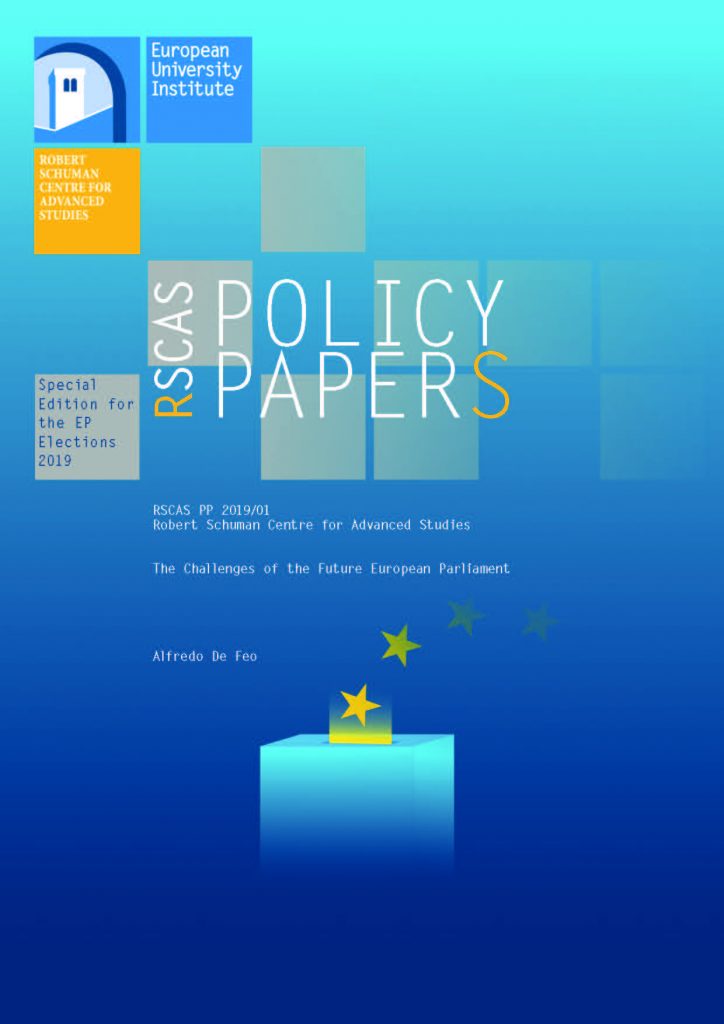European Parliament elections in May 2019 come at a critical time in the evolution of the EU: these will be the first elections after the anticipated departure of the UK and at a time when divergence on many issues characterise member state relations. Wider global developments weigh heavily on Europe with the return of hard geopolitics and efforts to undermine the global multilateral order.
The EUI wants to highlight the issues that are at the heart of the political agenda at this juncture. A number of ‘EP Elections Policy Papers’ were produced on all of the major issues and will be presented and discussed at a workshop on 19 March in Brussels.
Economy and the Single Market
A fair single market for EU prosperity
By Jacques Pelkmans
This paper explains why the single market is so important, why it is not always recognisable as many distinct names are employed, why and how ‘fairness’ has become a major issue in terms of legitimacy and to what extent the EU can do something about it. Principal policy options are suggested for the near future.
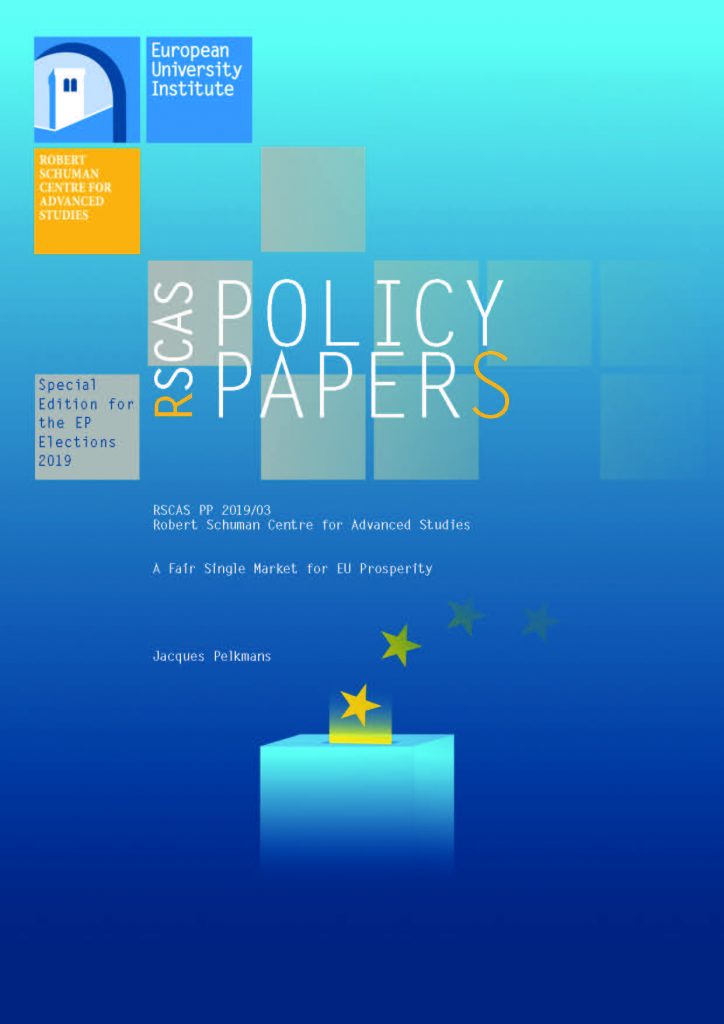
EU trade policy: challenges and opportunities
By Bernard Hoekman and Laura Puccio
As the world’s largest trading power, the EU should ramp up efforts to revitalize the WTO and deepen trade cooperation with like-minded countries to discipline the use of globally welfare-reducing trade and investment policies. Further improving transparency and monitoring the implementation of trade policy is also needed.
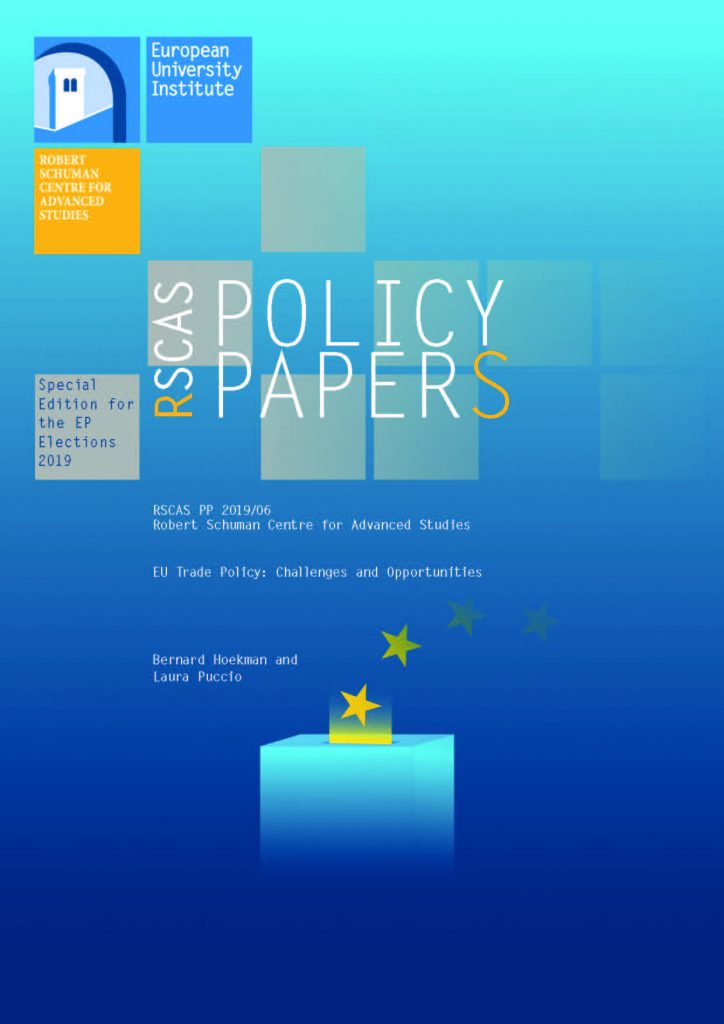
Feasible and much needed reforms for the EMU: the European Stability Fund et al.
By Ramon Marimon
This paper focuses on three legacies of the euro crisis that still need to be properly addressed in order to prevent new crises, gain resilience and grow: the Euro area divide legacy, the debt legacy and the fiscal time-inconsistency legacy.
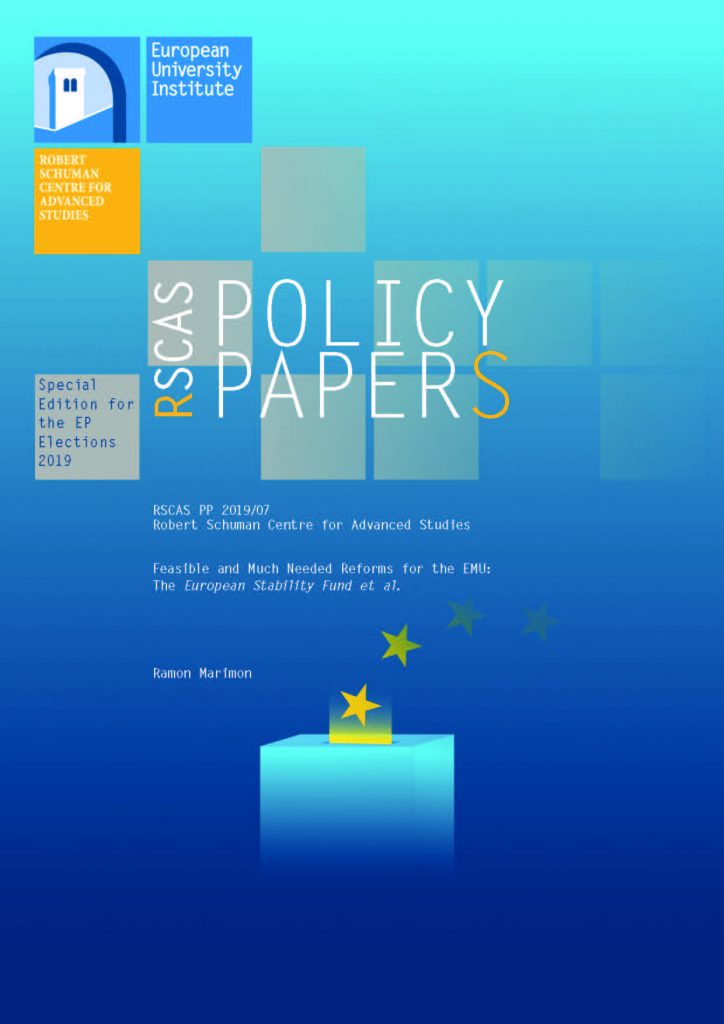
Carbon pricing, decarbonisation and digitalisation: the future of and the challenges to the EU climate & energy policy
By Simone Borghesi and Jean-Michel Glachant
Carbon pricing is of crucial importance for decarbonisation and provides a solid economic framework for unifying the EU climate and energy policy strategy. The EU ETS is the main instrument for this purpose as it leads to a unique carbon price all over Europe but a set of additional ‘fragmented’ policies are also needed for decarbonisation.
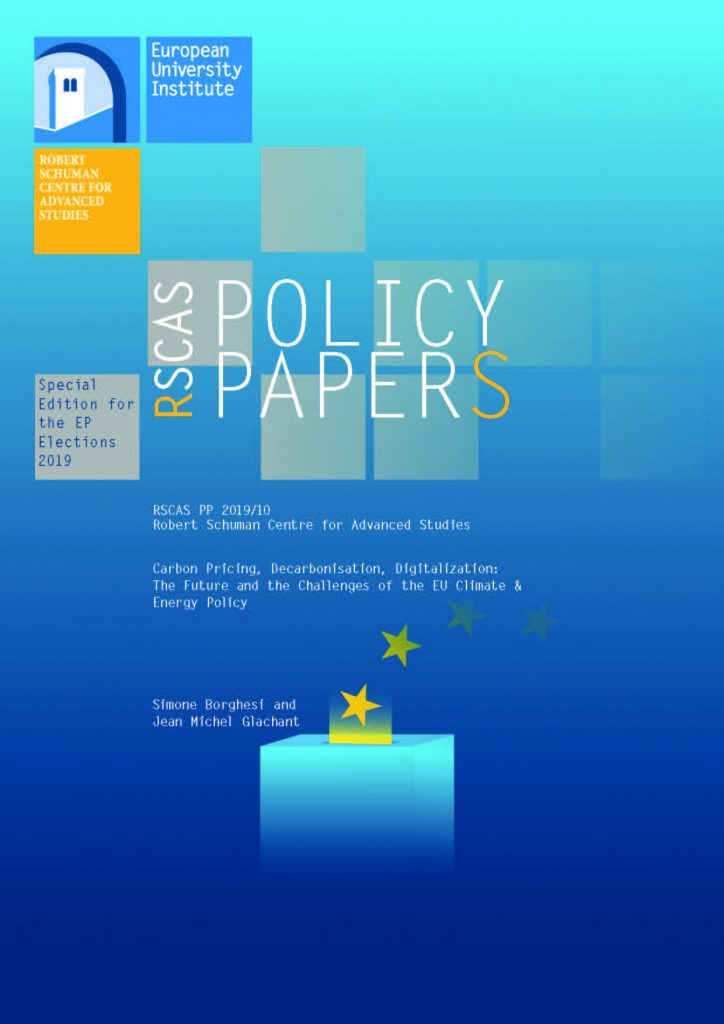
Security, Schengen, Africa
EU internal security: countering threats and/or respecting fundamental rights
By Florian Trauner
This paper looks ahead and presents two directions in which to develop the field of EU internal security. First, the EU may focus on strengthening fundamental rights and civil liberties within policies driven by a security rationale. Second, it may go in the opposite direction by improving the law enforcement toolbox and getting tougher on irregular migrants, criminals and terrorist suspects.
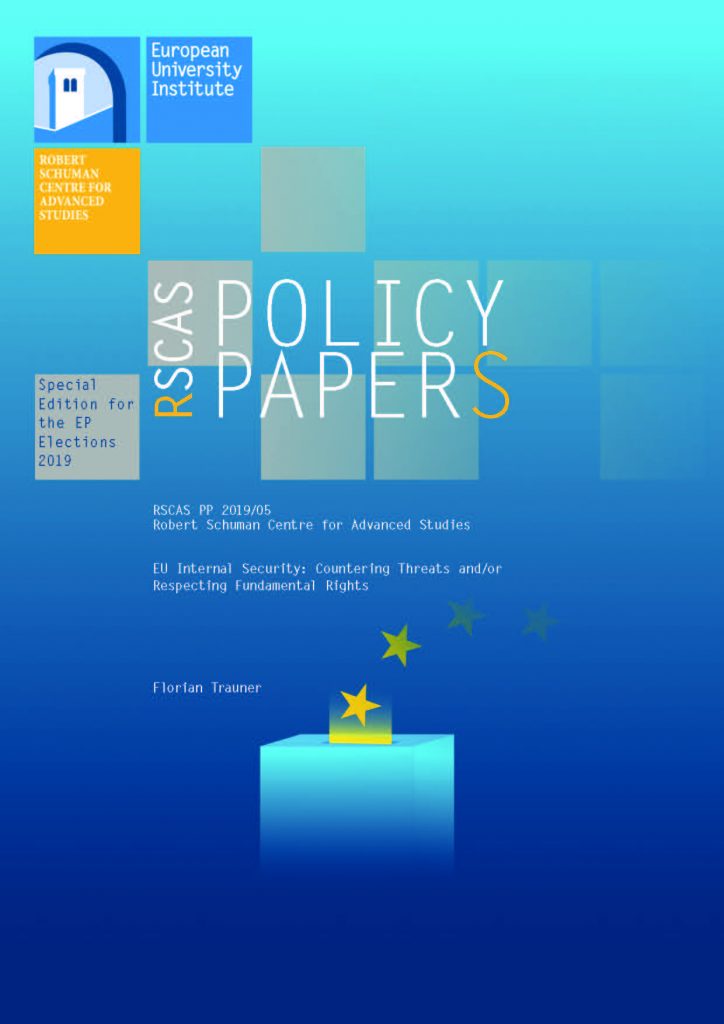
The state of the Schengen Area in the light of the 2019 European Parliament election
By Sergio Carrera
Is Schengen really in crisis? The paper examines this question in the light of the main policy and legal developments related to the Schengen system that have occurred during the last three years: the reintroduction of internal border checks on persons, the establishment of a common European Border and Coast Guard and the increasing use of border fences at the common external borders.
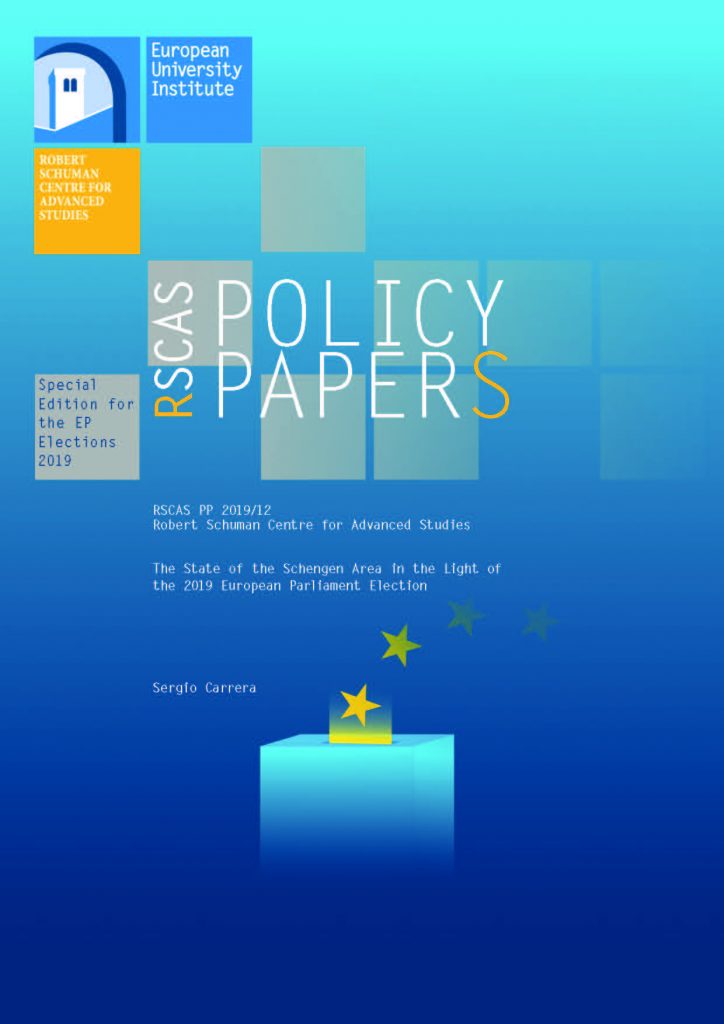
Reforming asylum and migration policies in Europe: attitudes, realism and values
By Andrew Geddes and Martin Ruhs
If countries do not agree on the basic principles underlying and guiding policy reform, there can be no hope of finding effective and sustainable common policies. We suggest that the principles behind EU asylum, refugee and migration policies need to speak to three fundamental issues: a better understanding of public attitudes; greater realism and more clarity about the fundamental values guiding policy reform.
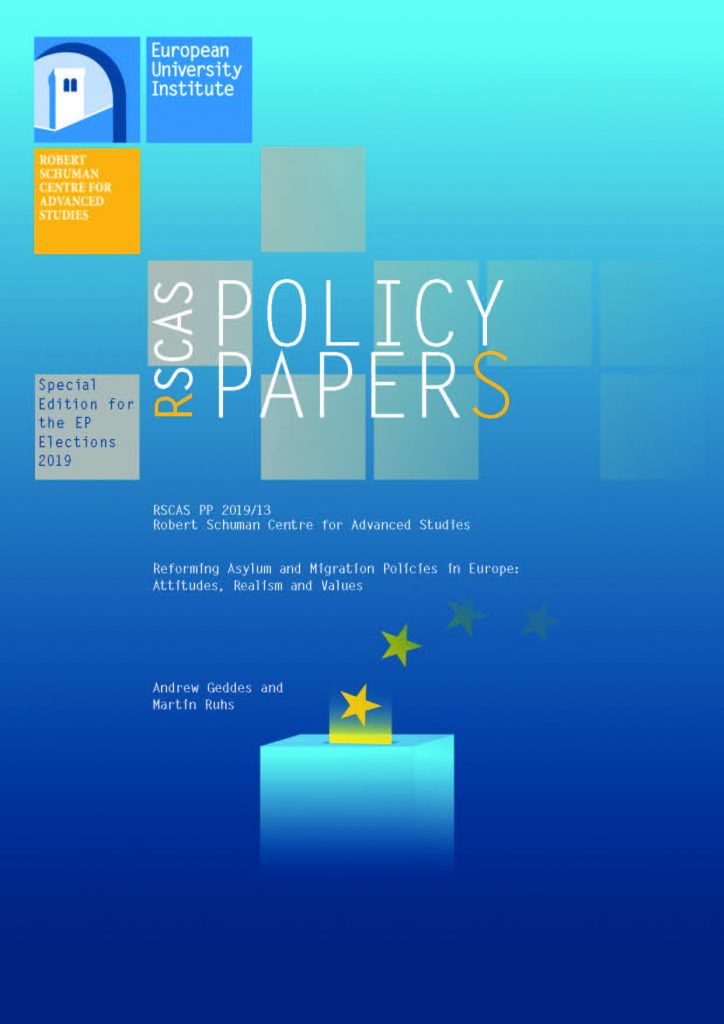
Defence union?
By Ben Tonra
This paper addresses the policy issues facing the European Parliament and incoming Commission in the field of security and defence. It first assesses the rapidly evolving (and threatening) security environment before looking at some very specific challenges, notably Brexit and US policy.
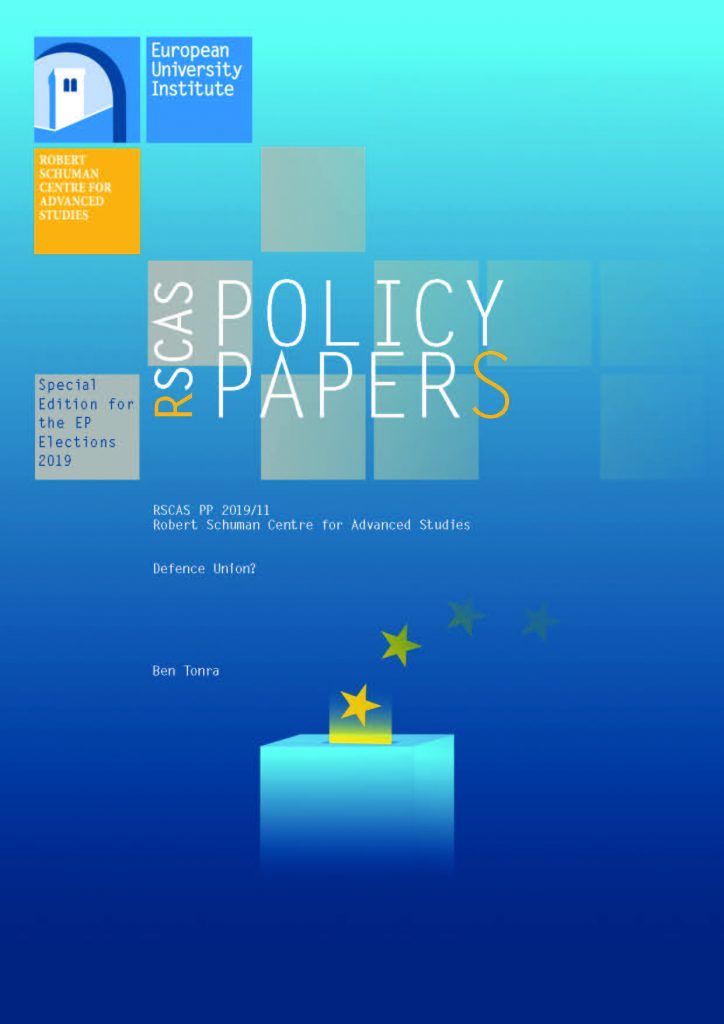
Africa: the next Eldorado or a troubled continent?
By Giorgia Giovannetti
For an aging EU, Africa can become the main source of human capital, so the education of Africa’s young generations is important for the development of both Africa and Europe. Furthermore, the EU can share its expertise in urban planning, new technologies and education. Training may be worth more than money for the development of Africa.
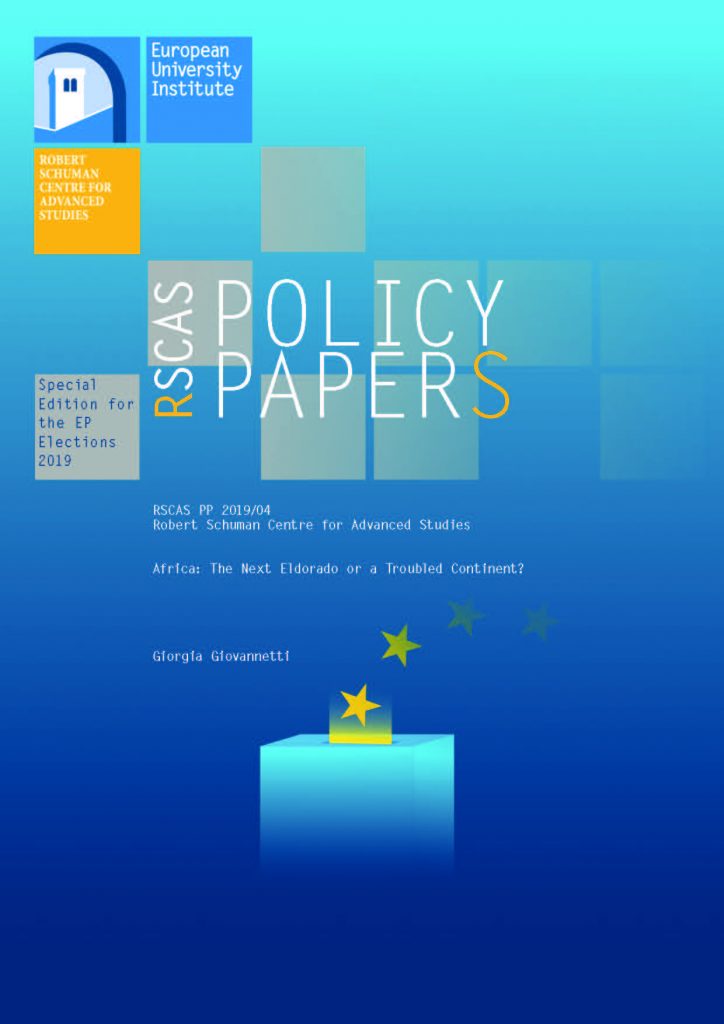
Social Europe
A tangible human face for social Europe
By Claire Kilpatrick and Bruno De Witte
The paper suggests that the European Pillar of Social Rights, is insufficient to provide a tangible human face for Social Europe in the new context of migration and the legacies of the economic crisis and argues that binding EU commitments to minimum pay and income and to addressing inequalities are now needed.
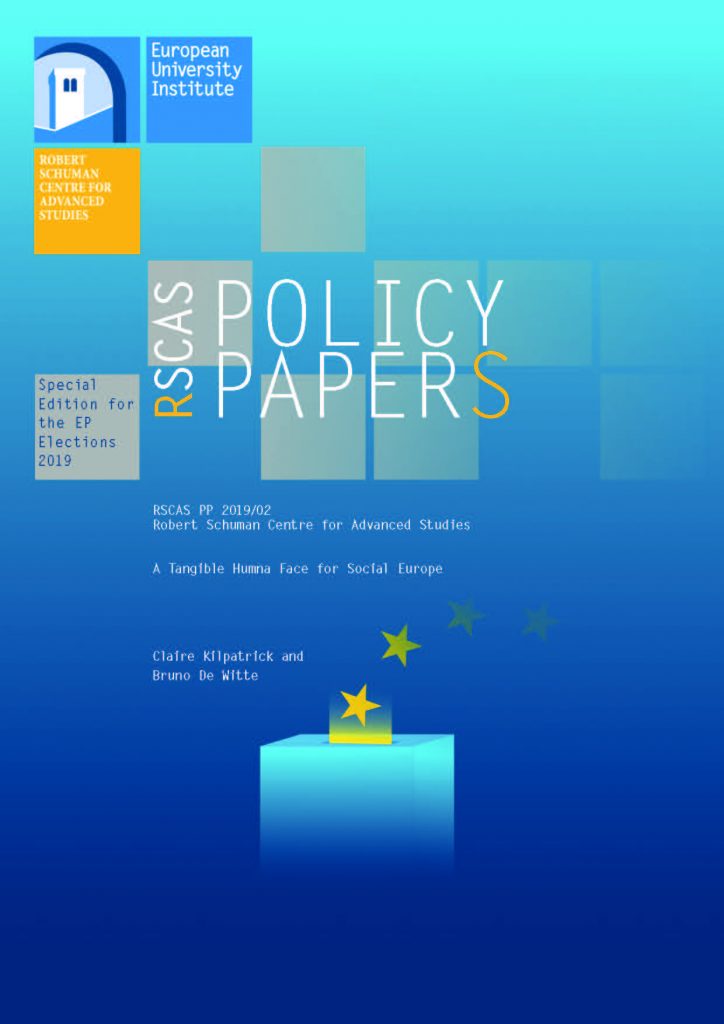
Making social investment happen in the Eurozone
By Anton Hemerijck
The most competitive economies in the European Union (EU) spend more on social policy and public services than the less successful ones. 21st century knowledge economies and ageing societies require European welfare states to focus as much – if not more – on ex-ante social investment capacitation than on ex-post social security compensation.
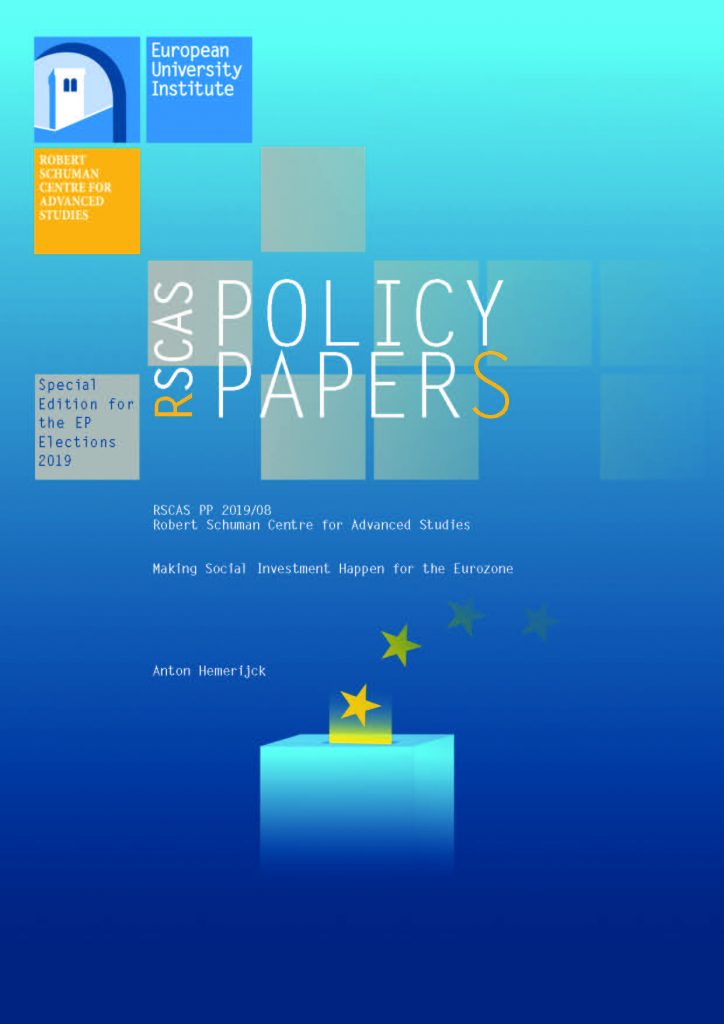
Welfare state futures: supporting solidarity in Europe
By Ellen M. Immergut
Three main trends threaten solidarity: increasing inequalities; problems of legitimacy in welfare states; and the rise of extreme-right parties. In response, the European Union has introduced a new ‘Pillar of Social Rights.’ This is an important and potentially fruitful initiative, but it needs to be supported with more of the latest research on the sustainability of welfare states.
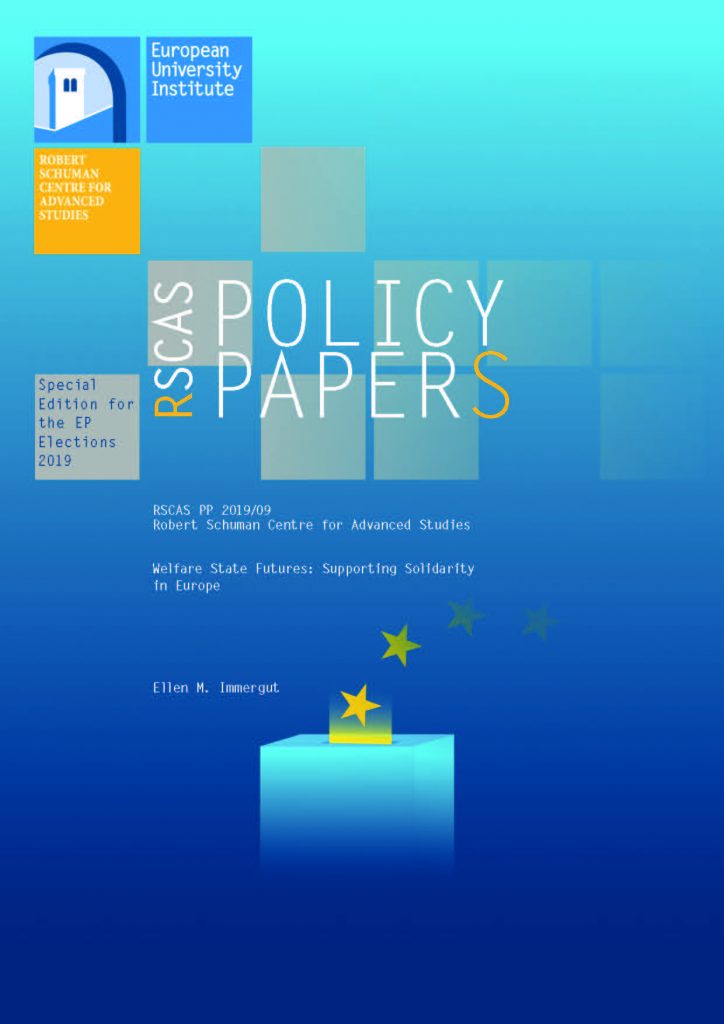
The challenges of the future European Parliament
By Alfredo de Feo
The new European Parliament might represent the critical voices coming from a large part of public opinion and not only from the more radical parties but also from some Europhiles and Euro critics and stimulate a radical but soft reform of the European project. It could be the beginning of a more ambitious reform process which could go on to a revision of the governance of the EU and of the Treaties.
